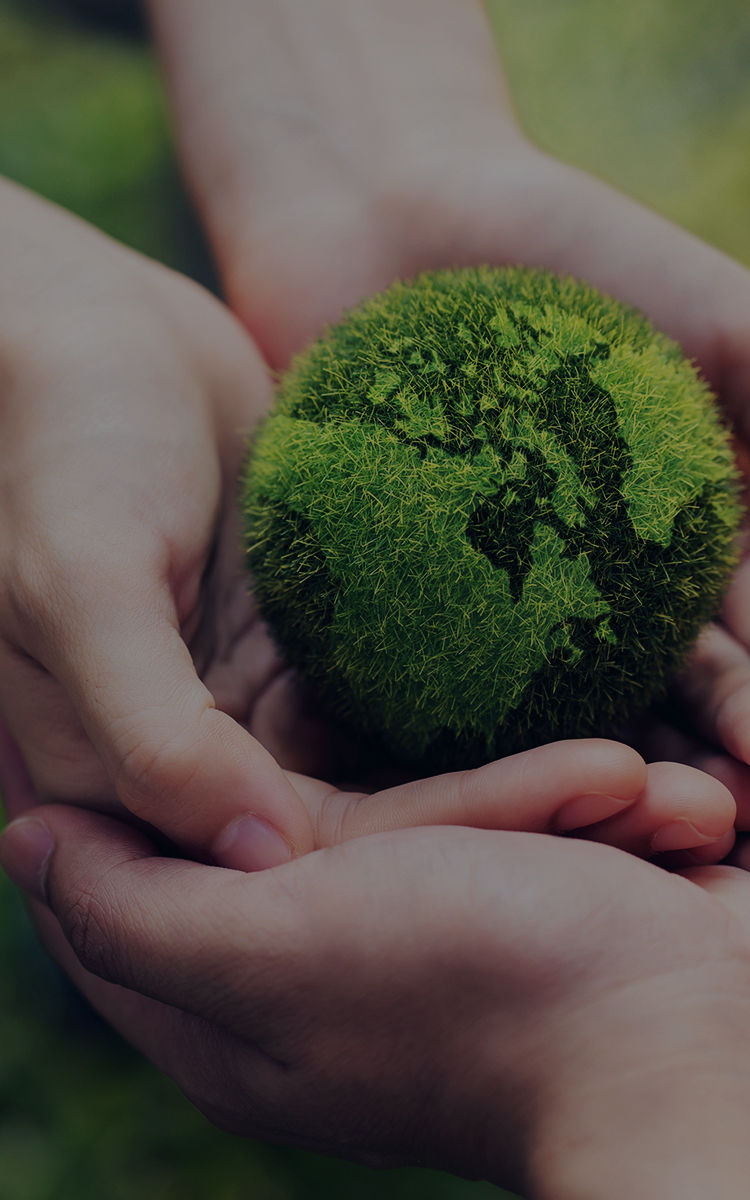In today’s world, the conversation about recycling often revolves around its environmental benefits—reducing waste in landfills, conserving natural resources, and saving energy.
While these are undeniably crucial aspects, there's another side to recycling that deserves our attention: its impact on our health. For those of us who prioritize wellness, understanding how recycling contributes to a healthier planet and, in turn, healthier lives, can be a powerful motivator to make more eco-conscious choices.
At first glance, the link between recycling and health might not be apparent. However, when we dig deeper, the connections are profound. By engaging in recycling, we contribute to reducing pollution, which has a direct effect on the air we breathe, the water we drink, and the food we consume. It’s a cycle of health that starts with the simple act of separating paper, plastic, glass, and metal from our trash.
Air quality is a prime example of this interconnectedness. Industries that produce new products from raw materials are major sources of air pollution. The process of extracting and processing these materials, then manufacturing goods, releases a significant amount of pollutants into the atmosphere. Recycling reduces the demand for new materials, which in turn, lowers the pollutants being emitted. Cleaner air leads to reduced respiratory problems, allergies, and other health issues, making our communities healthier places to live.
Water is another critical area where recycling makes a difference. The production of new goods often results in water pollution, affecting both marine life and the quality of water available to us. By recycling, we help decrease the pollution of rivers, lakes, and oceans, ensuring safer drinking water and healthier aquatic ecosystems. This not only benefits our physical health but also supports the mental well-being that comes from living in a clean and sustainable environment.
Furthermore, recycling supports sustainable agriculture. The misuse of plastics and chemicals has contaminated soil, affecting the quality and safety of the food grown in it. Recycling and using recycled materials can reduce this contamination, leading to healthier food options. This is especially important for those of us who are mindful about what we consume and strive to maintain a diet that supports our health and well-being.
So, how can we, as individuals, contribute to this cycle of health through recycling? Here are some practical steps to make a significant impact:
Educate Yourself and Others: Knowledge is the first step to action. Learn about what can be recycled in your community and share this information with friends and family. Awareness leads to action.
Practice Mindful Consumption: Before making a purchase, consider its lifecycle. Opt for products with minimal packaging, or better yet, products made from recycled materials. By being conscious consumers, we can reduce the amount of waste that needs to be recycled in the first place.
Get Creative with Recycling: Beyond just separating recyclables from trash, think about repurposing items. An old jar can become a container for bulk foods, or a worn-out t-shirt can be turned into cleaning rags. Creativity in recycling not only reduces waste but also adds a personal touch to our daily lives.
Support Eco-friendly Businesses: Patronize companies that prioritize sustainability in their manufacturing processes and products. Your spending power is a tool that can encourage more businesses to adopt eco-conscious practices.
Advocate for Community Action: Engage with your local community to promote recycling initiatives. Whether it's participating in a cleanup drive, advocating for better recycling facilities, or simply encouraging neighbors to recycle, collective action has the power to enact significant change.
In embracing recycling, we do more than just protect the environment; we take a vital step towards creating a healthier lifestyle for ourselves and future generations. The impact of recycling on our health is a compelling reason to prioritize sustainability in our daily lives. It’s a journey of mindful living that not only benefits the planet but also nurtures our well-being.
As we continue to navigate the challenges of environmental conservation, let’s remember that each small action contributes to a larger impact. By incorporating recycling into our routine, we join a community of health-conscious individuals committed to making a difference. It’s an act of care—not just for the earth, but for our health and the well-being of communities worldwide.
The impact of recycling extends far beyond the environmental sphere; it is intrinsically linked to our health. By adopting sustainable practices, we not only contribute to the planet's well-being but also invest in our own health. Let's make recycling a cornerstone of our lifestyle, for the sake of our planet, our health, and our future.
How to Make a Difference Through Recycling
1. Understanding What Can Be Recycled
Paper and Cardboard: Most paper products, including newspapers, books, and cardboard boxes, are recyclable. Ensure they’re clean and dry.
Plastics: Look for the recycling symbol with a number inside. This indicates the type of plastic and whether it can be recycled in your area.
Metals: Aluminum cans, tin cans, and foil are often recyclable. Rinse them to remove any food residue.
Glass: Bottles and jars can usually be recycled. However, glass used for windows or dishes typically cannot.
Electronics: Many communities have special recycling programs for electronics, where your old devices can be responsibly disposed of or repurposed.
2. Opting for Recyclable and Recycled Products
Choose products packaged in materials you know can be recycled in your community.
When available, select products made from recycled materials to support the market for recyclables.
3. Proper Sorting and Contamination Avoidance
Contamination is a major issue in recycling. Make sure to rinse food containers and avoid putting non-recyclable materials in the recycling bin.
Follow your local guidelines for sorting recyclables. Some areas require separating materials, while others offer single-stream recycling.
4. Beyond the Bin: Other Ways to Recycle
Composting: Organic waste like food scraps and yard trimmings can be composted to create nutrient-rich soil.
Textiles: Donate clothes and textiles to local charities or look for textile recycling programs.
Batteries and Light Bulbs: These require special handling. Many stores offer recycling programs for these items.
5. Getting Involved in Community Recycling Efforts
Participate in or organize local clean-up days to collect recyclable waste from public spaces.
Advocate for better recycling facilities and programs in your community if they are lacking.
Educate others about the importance of recycling and how to do it properly.
6. Innovative Recycling
Look for creative ways to repurpose items instead of discarding them. For example, old jars can be used for storage, and worn-out clothing can be turned into crafts or cleaning cloths.
Support businesses and initiatives that are working on innovative recycling technologies and solutions.



